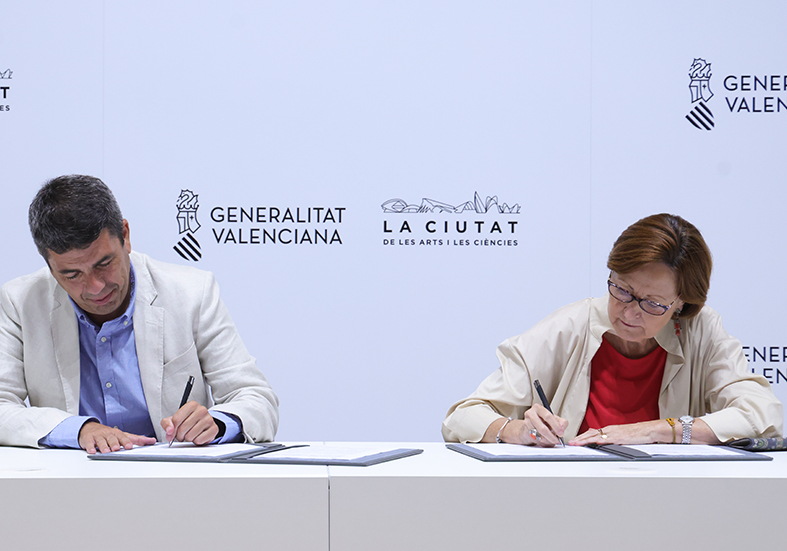Josep Lluís Barona: "Health crises have always occurred in times of social change".
- Mètode
- May 5th, 2023

The search for solutions in the recent pandemic of covid-19 has made us look to the past. To review what other pandemics we have had over time and how we have dealt with them. The coronavirus crisis has sparked a renewed interest in understanding how health and disease have been part of our history. Josep Lluís Barona, professor of History of Science at the University of Valencia, has just coordinated the book Manual of the History of Medicine (Tirant, 2023) with the participation of twenty specialists in various fields such as history, but also anthropology, geography and economics. In addition to his teaching and research activity, Josep Lluís Barona collaborates in various media and journals such as Method, maintaining the section «History of Science».
How did the idea for the book come about?
We live in a period in which medicine is in the public eye, particularly because of the media influence that the coronavirus pandemic, illnesses and mental health have had. All this made us think that it was very convenient to make a general reflection from different points of view.
What is the approach to the history of medicine?
The book tries to break a classical vision of the evolution of knowledge and medical practices in order to incorporate concepts. It talks about diseases, illnesses, healing spaces... Therefore, it is a book that tries to break the European, Eurocentric, Western view, and to incorporate traditions such as Asian, Indian, Xindian, indigenous cultures, to talk about colonialism and medicine...
What audiences are you targeting?
It is not conceived as an academic textbook for university students, for professionals, but as a reference work, a work of reference in which some twenty specialists participate and talk about the periods or topics in which they have contributed. It is, therefore, a collective work that offers a variety of perspectives and, at the same time, is aimed at very different audiences. For example, just as it talks about doctors, it talks about patients, patients' associations, and the social function they have in a democratic society: to be the voice of those who suffer from the disease. In this sense, I think that the work provides an absolutely new perspective.
Why is it important to look at the past in a pandemic like the coronavirus?
History is essential to understand the important dimension of disease, the relationships between diseases, human behavior and also the interaction with the environment. It makes us understand that what we have seen today has a lot to do with the post-industrial technological society and with our relationship with the planet and the environment. Every disease, and every infection and epidemic, has a social context in which it occurs and is only understandable in this context. It is different as the medieval societies experienced the plague, or the societies of the XVIII century the verola, or in the XIX century the tuberculosis or the cholera? That is why the history of diseases, seen from this point of view - not only from the microbes that cause the disease, but also from the relationships between humans, societies and the environment - allows us to understand that the way to fight against the coronavirus or against the future pandemics that will come has a lot to do with the way we live.
The book also talks about spaces and medical instruments. How important are they in medical practice?
Evidently, medical practice is closely linked to the specific place where the clinical act takes place: from the traditional doctor's office to the home visit. By the way, the cover of the book just reproduces a chart [Portrait of Jacob Franszn and family, by Egbert van Heemskerck] of what a surgeon's surgery would be like in the 17th century: with his family, his son who helps him to diagnose a patient, his wife, the rest of the patients waiting.... The traditional hospital was a place of health care for poor people who could not have access to an individual practice at home or to the doctor's office, but, with the passing of time, this hospital has become the main nucleus of cutting-edge, technological care, where all the exploratory, diagnostic and therapeutic resources are available. This transformation of the medical practice space is very important and has had a great impact on the relationship between the patient and the health staff. And another dimension that is also present in the manual is how scientific instruments allow the generation of a narrative around medical practices: the urological instruments, or the surgical practices, or the instruments of gynecology and obstetrics that were traditionally used... The book also has a chapter dedicated to the professions and to the plurality of health professionals that from the middle ages were, if not more, a desena: the doctor, the apothecary, the pharmacist, the nurse, the nurse... The book tries to open topics, to open elements of reflection.
What can we learn from the history of previous health crises?
Health crises have almost always occurred at times of social change and transformation. It happened in the Neolithic period, when the first societies moved to sedentarism, agriculture, and the first epidemics appeared. The second was in the so-called first globalization, which coincided with the period of colonial expansion of the European powers, of the empires that expanded in America, in Africa, and this involved the revival of pestilence, the spread of verola, of syphilis and of a whole series of diseases. And now we are in the third globalization. And this stage has to make us think, apart from the relationship with the environment and the importance that this has, that health is not something that affects the Valencian or European society, but it is a global problem. Therefore, it is very important to develop prevention and intervention strategies that do not only affect countries, but we need a global, worldwide conception of health. From a social, political and historical perspective we would better look at the problem we have and the way to try to stop it. Because it is not possible to avoid it. Surely there will be new pandemics.
File in: Investigació a la UV
















